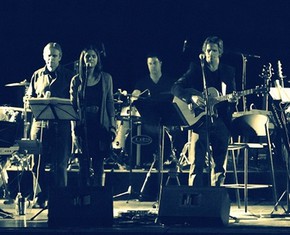The views expressed in our content reflect individual perspectives and do not represent the authoritative views of the Baha'i Faith.
This is the Day whereon the Ocean of God’s mercy hath been manifested unto men, the Day in which the Day Star of His loving-kindness hath shed its radiance upon them, the Day in which the clouds of His bountiful favor have overshadowed the whole of mankind. – Baha’u’llah, Gleanings from the Writings of Baha’u’llah, p. 6.
Who was Baha’u’llah, the founder and prophet of the Baha’i Faith?
Born in Tehran, Persia on November 12, 1817, Baha’u’llah’s given name was Mirza Husayn Ali. The son of Mirza Abbas, a notable landowner and government official from the province of Nur, Baha’u’llah was a descendent of both Abraham and Zoroaster. In his early adulthood, Baha’u’llah became known in Persia as “the father of the poor,” for his charitable work among the destitute and the homeless. A poet and Sufi mystic, Baha’u’llah joined the Babi Faith in 1844, and enthusiastically promulgated that revolutionary new religion. Despite persecution from the Muslim clergy, and his arrest and torture for his beliefs, Baha’u’llah became a Babi leader. After the execution of the Bab in 1850, Baha’u’llah proclaimed the beginning of the Baha’i Faith in 1863 from his exile in Baghdad. He spent the rest of his life in prison and in exile, proclaiming his new Faith and its principles of peace, universal love and world unity.
Who was this man, who has inspired such allegiance and love among so many devoted followers?
Here’s one brief description, from Peter Smith’s A Concise Encyclopedia of the Baha’i Faith:
The great devotion and love that his followers felt for Baha’u’llah makes it difficult for us to gain an impression of what he was actually like. Thus their accounts of Baha’u’llah emphasize his overwhelming and ineffable presence, one writer stating that it was almost impossible for anyone to look into his eyes or utter a complete sentence in his presence. – p. 78.
Here’s another, more detailed description from the famed British Orientalist scholar E. G. Browne, the only Westerner who ever met Baha’u’llah:
“The face of Him on Whom I gazed,” is the interviewer’s memorable testimony for posterity, “I can never forget, though I cannot describe it. Those piercing eyes seemed to read one’s very soul; power and authority sat on that ample brow…. No need to ask in whose presence I stood, as I bowed myself before one who is the object of a devotion and love which kings might envy and emperors sigh for in vain.” “Here,” the visitor himself has testified, “did I spend five most memorable days, during which I enjoyed unparalleled and unhoped-for opportunities of holding intercourse with those who are the fountain-heads of that mighty and wondrous spirit, which works with invisible but ever-increasing force for the transformation and quickening of a people who slumber in a sleep like unto death. It was, in truth, a strange and moving experience, but one whereof I despair of conveying any save the feeblest impression.” – quoted by Shoghi Effendi, God Passes By, p. 193.
Like all the prophets and founders of the world’s great Faiths, Baha’u’llah suffered enormously as a result of his new teachings. He taught world peace, racial and religious unity, the essential harmony of science and religion, the equality of men and women, and the elimination of the extremes of poverty and wealth. He advocated compulsory universal education, the adoption of a universal auxiliary language and the formation of a global system of governance. Like every great religious messenger, all of these teachings put Baha’u’llah at odds with the officials and clergy of his time—but they ultimately attracted millions of devoted followers the world over.
Perhaps you can see why in this passage from E. G. Browne’s description of his meetings with Baha’u’llah:
Praise be to God that thou hast attained!… Thou hast come to see a prisoner and an exile…. We desire but the good of the world and happiness of the nations; yet they deem us a stirrer up of strife and sedition worthy of bondage and banishment…. That all nations should become one in faith and all men as brothers; that the bonds of affection and unity between the sons of men should be strengthened; that diversity of religion should cease, and differences of race be annulled — what harm is there in this?… Yet so it shall be; these fruitless strifes, these ruinous wars shall pass away, and the “Most Great Peace” shall come…. Do not you in Europe need this also? Is not this that which Christ foretold?… Yet do we see your kings and rulers lavishing their treasures more freely on means for the destruction of the human race than on that which would conduce to the happiness of mankind…. These strifes and this bloodshed and discord must cease, and all men be as one kindred and one family…. Let not a man glory in this, that he loves his country; let him rather glory in this, that he loves his kind…. – Baha’u’llah, quoted by E. G. Browne, from his pen portrait of Baha’u’llah, cited in J. E. Esslemont’s Baha’u’llah and the New Era, pp. 39-40.
Next: How to Decide if a Religion is True
You May Also Like
Comments

















Could you supply a reference that might explain your calling Him a "Sufi mystic"---in other words, is it in the Writings (up to and including the Universal House of Justice).